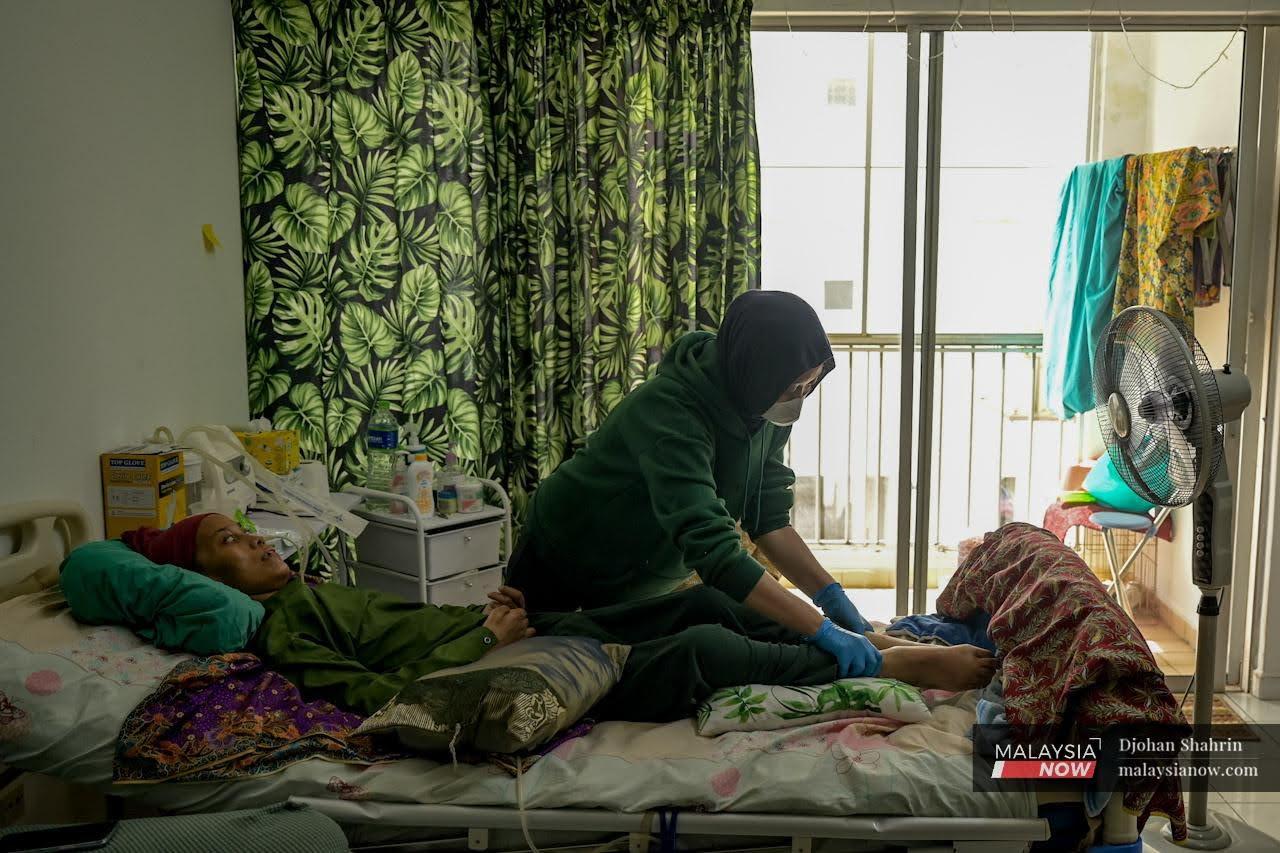Husbandly love takes man from construction company to full-time nursing of wife
It may be years before Norhasnita Nordin fully recovers, but Akbar Ismail isn't giving up.
Just In
For nine years, Norhasnita Nordin worked as a finance officer at a private company in Puchong.
She enjoyed her work and was good at her job – until one day, she began experiencing health problems.
At first, the symptoms were innocuous enough: she was tired and sometimes nauseous. Sometimes, she would have diarrhoea, and her heart would begin beating more quickly.
In November last year, she went for a check-up and the hospital told her family that at just 47, Norhasnita had hyperthyroidism.
Speaking to MalaysiaNow, her husband, Akbar Ismail, said Norhasnita had been struggling with both personal and work-related stress.

“Not long afterwards, she had a stroke,” he said.
At that point, Norhasnita could still speak, albeit slowly and with trouble. Eventually, however, Akbar decided to resign from his job at a construction company so that he could take care of his wife full-time.
He also stopped his part-time gig providing e-hailing services.
Akbar, who nurses Norhasnita with the help of their youngest daughter Hilda, said the hyperthyroidism had affected his wife’s heart. Her heartbeat speeds up and can only be brought under control through medication.
“Sometimes, her heart can beat more than 200 times a minute,” he said. “You can actually see it pounding.”
Norhasnita had looked to be on the mend in December, but early this year, another stroke left her greatly weakened.
“The last time she talked to me was the day she had the stroke,” Akbar recalled.
“She asked me to go home from the hospital. I had been waiting outside because I was very worried.”

The doctor gave her some medication to help her sleep, but when she woke up, she could not get out of bed.
A CT scan showed a blood clot in her brain. Now, she has weakened to the point that she appears almost as if she is in a coma.
When Norhasnita’s health problems first appeared, the family hired a nurse as they did not know how to take care of her on their own. At that point, she was also hooked up to a machine that helped her breathe.
Now, Akbar is learning how to take care of his wife alone. Hilda, who is still at school, helps him in the evenings.
“I let her finish her schoolwork before she begins helping her mother,” he said.
“She is learning how to change the dressing for one of the sores on her back.”
At first, this wound was so big that Norhasnita’s spine could be seen.
“Thanks to Hilda, though, it is much smaller now,” Akbar said. “Even the doctors are impressed with how much it has improved.”

Basic necessities and medication cost Akbar over RM3,000 a month. He also brings his wife to the hospital for follow-up treatment and physiotherapy.
The medication is for the problems with Norhasnita’s heart, lungs and brain. She also has diabetes.
“If she doesn’t take her cough medicine, we have to clear out the phlegm over and over again, every hour,” Akbar said.
“With the medicine, we only have to do this once or twice.”
He continues to hope that one day, his wife will recover even if her recovery is not 100%.
As it is, he said, Norhasnita is doing better than other patients who have the same health issues.
In August, she will be admitted to the endocrine unit to undergo radioactive treatment. This will require careful planning as she won’t be able to see anyone for a week afterwards.
“Right now, she needs to be monitored around the clock,” Akbar said.
If all goes well, he added, Norhasnita will recover in about three years’ time.
Subscribe to our newsletter
To be updated with all the latest news and analyses daily.
